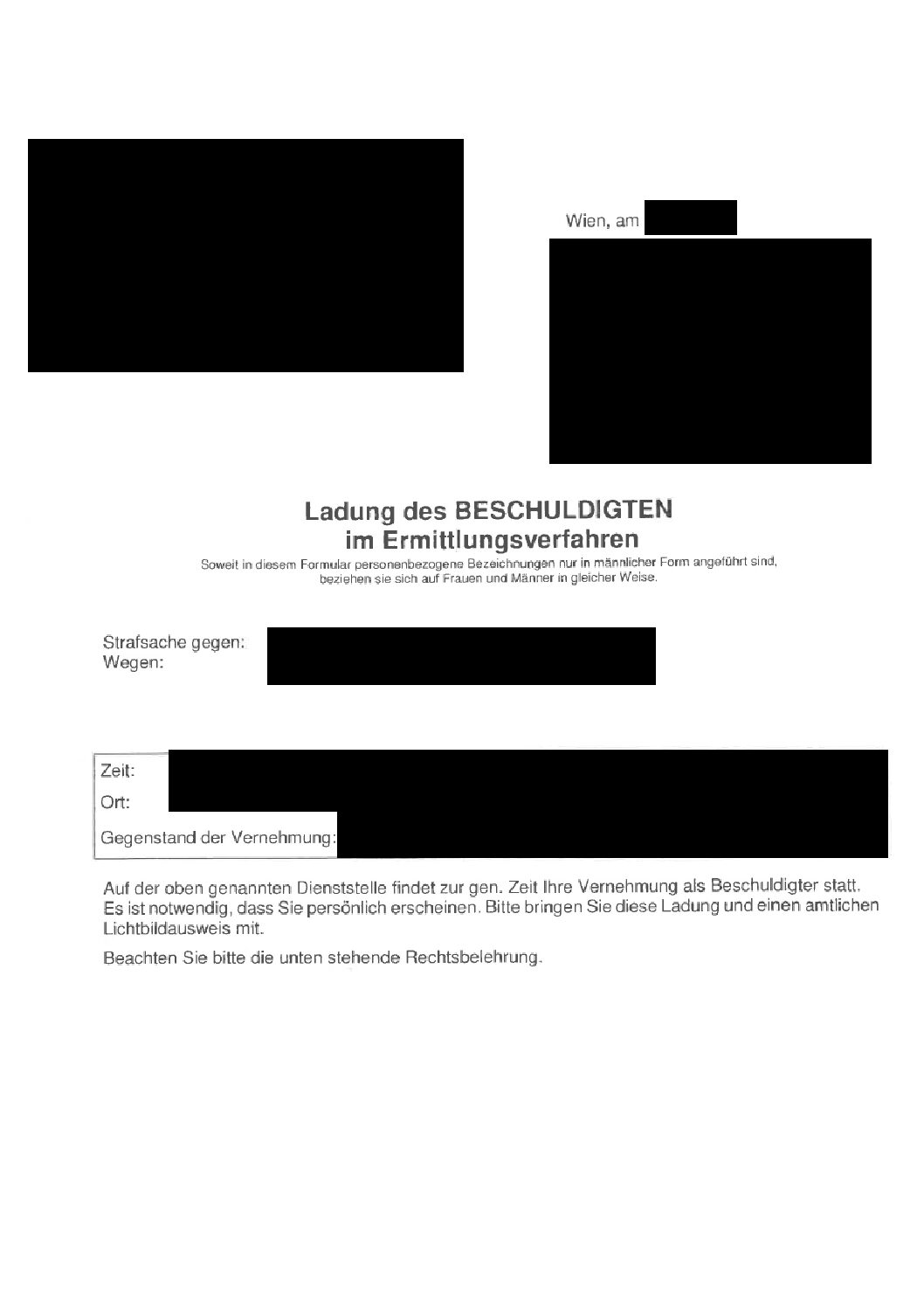
Have you received a written summons for questioning?
Or have you been contacted by telephone by the police and informed that you are being investigated? What should you do?
There are a few important points to bear in mind when being questioned by the police in preliminary proceedings. It is advisable to seek legal assistance as soon as possible. If “mistakes” are made during the investigation, they are difficult to undo. The most important thing is to familiarize yourself with the contents of the file beforehand. As mentioned, this is best done with the help of a lawyer, especially as the file can only be photographed or copies can be made for a fee as long as it is held exclusively by the police. The public prosecutor’s office can do this electronically – this usually makes it easier for your lawyer to obtain an up-to-date copy of the file. It is important to obtain an overview of the entire file and all further steps planned. Unfortunately, it happens again and again that unrepresented defendants receive incomplete parts of the file and are therefore not adequately informed. Access to the file is often restricted – there are also legal remedies that your lawyer can take on your behalf.
If you now know why preliminary proceedings have been initiated against you, the next step is to prepare for your interview with the police. As the accused, you generally have the right to remain silent and not incriminate yourself.
However, silence is not always the best solution. In particular, if there are witnesses who can exonerate you, it is necessary to apply for evidence to be taken. It is best to discuss this with your trusted lawyer.
Your lawyer may also accompany you to the hearing of the accused. They must ensure that the rules of the Code of Criminal Procedure are observed and may ask additional questions if they feel that the questioning by the police officer is not complete.
IMPORTANT: If you make use of your right to refuse to give evidence, you do NOT have to give the interrogating police officer any reason why you are doing so. It sometimes happens that such unlawful and absolutely inadmissible questions are used by police officers to circumvent this right. Careful checking of the protocol written down by the police officer is – also for this reason – urgently required.
In the end, every defendant has the right to receive a free copy of his interrogation protocol.
It is important to always stay up to date. Especially in criminal proceedings, knowledge of the current file content is essential in order to be able to react quickly and effectively.
Do you need help with a criminal law issue? Please contact me on 01/3910044 and in urgent cases I can be reached on the emergency number 0664/1878910. As a member of the lawyer on-call service, I am available several times a month as part of a 24-hour journal service, especially for arrested defendants.


